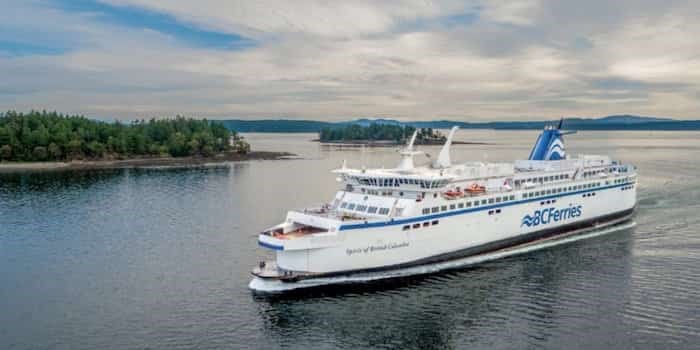VANCOUVER — The financially struggling BC Ferries will be eligible to receive funding through the joint federal and provincial Safe Restart Agreement.
Environment Minister Jonathan Wilkinson says the ferry service will be eligible for some of the $540-million financial package meant to spur recovery from the COVID-19 pandemic.
Wilkinson says the B.C. government will have to match the funds and it will determine how much BC Ferries and other transit providers will receive.
Provincial Transportation Minister Claire Trevena says the province is working closely with BC Ferries, BC Transit and TransLink to understand the challenges they're facing before allocating the money.
Trevena says the decisions will be based on considerations that put the public interest first, including restoring service to pre-pandemic levels and keeping fares affordable.
B.C. has earmarked up to $1 billion to match federal funds for public transit and local governments.
"We want to be able to work with BC Ferries, but we don't think that it is in the best interest, in the public interest, at the moment, when we're building out of COVID, to be raising fares," Trevena said during a briefing on Tuesday.
"We are working, as we can, with the information that BC Ferries will provide us, as well as (BC) Transit and TransLink, to make sure that all three agencies can continue in a strong way into the future," Trevena said.
The Canadian Ferry Association has said that BC Ferries saw an 80 per cent decline in traffic over three months between March and May, amounting to losses of up to $1.5 million per day.
BC Ferries is a private company run by a not-for-profit corporation but is recognized as provincially owned under federal tax law.
The designation meant it was excluded from the federal government's wage subsidy program.
This report by The Canadian Press was first published Aug. 11, 2020.



